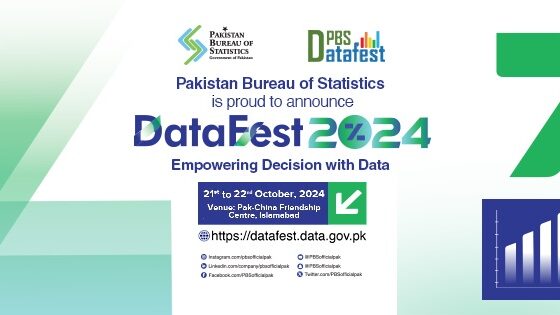Amir Rao
Country manager for Microsoft Pakistan
He is currently based in Islamabad and managing the offices in Karachi and Islamabad. His previous work experience encompasses working in the telecommunication sector. He has worked with companies such as Nokia-Siemens network; Chinese based firm Huawei and Motorola where he was the director for strategic development.
Can you shed some light on Microsoft’s devices and services strategy?
Rao: Microsoft has adopted this strategy for its future growth. Now our whole industry’s paradigm has shifted. So previously, if I had to talk about devices, 10 years ago computing devices were only desktops and laptops. Microsoft has taken a strategic shift towards devices is because we believe there is going to be a tenfold increase in the number of computing devices. If you compare it, the whole of laptops and tablets has moved on to the new world of Smartphones and fablets. That is why we believe that we need to tailor our software as a service. So on one hand we’re going to focus on devices, whether it’s a tablet, fablet, phone, laptop or desktop. On the other hand, we’re focusing on the cloud based services because we want to enhance the windows user experience.
Can you highlight the top IT trends in the region currently?
Rao: In the region I think we have a lot of catching up to do. In Pakistan we have a lot of potential for growth because there is a lot of automation and adoption for technology. Whether it is public or civic services, relates to utility companies or adoption of high bandwidth telecom services. Specifically the trend is going to be on technology adoption, the reason for this is facilitation of human life, which creates countless opportunities for companies working in different industries for example apparel so you will see a lot of mushroom growth of fashion boutiques and brands in Pakistan. But these brands need to reach out to people which means that it is all about using digital media and creating campaigns. But at the same time they need to become more efficient and productive. This has been a reason for the growth of software whether it is a cell phone, software, ERP, CRM so on and so forth.
How do you evaluate/design your company’s strategies as now people do not just want to buy products but experience?
Rao: Microsoft’s business model is fundamentally based on its philosophy to enable our partner eco system. We give them a platform so they’re able to develop the applications according to the market requirements. We’re working in collaboration with ISVs, software and application developers. We’re a global company as we operate in Norway, Pakistan, United States, Angola, Sudan all of these societies are in different levels of human development. Therefore the market requirements and trends are different. Every dollar Microsoft makes our partner makes 3-4 dollars. So our strategy is to capitalize in that arena of growth and in the next few years we are going to foster partners in devices and services. It’s all about user experience so we would be working very closely with partners who would actually be very interested in developing a line of business applications for windows tablets specifically because we believe the devices eco system will shift towards that. There is going to be a lot of focus on working with partners who’re specifically addressing market verticals such as freight forwarding, logistics, aviation companies, banks and telecommunication. Therefore our strategy is going to be identifying key partners and then work on focusing on enabling them so they can focus on utilising the base platform software as well as services which are available through Microsoft online services.
When we are talking about IT innovation how IT savvy do you think organizations are becoming?
Rao: In Pakistan, I think people are generally technologically savvy. We’ve been late because we have not been exposed to a lot of technology. Classical example is the cell phone the traditional 2g phones and we have seen a massive growth we have access to have 100 million subscribers. However in general what technology does is that it takes away the traditional jobs and creates some additional jobs so there is always going to be that tension as far as adoption of technology is concerned by the organizations because more automation they do, certain manual jobs will become redundant. However, the organizations are learning in Pakistan that by relieving the capital requirements of operational expenditures on some manual workforce, they could invest in technology and they would still use the same workforce and money to expand on their products, strategy and the market. The sooner we realize, the better it is. However I would be fairly optimistic that organizations have seen a lot of e-applications coming up in the market and I think this will only grow.
What is the general market for windows phone like?
Rao: iWindows phone is a fantastic device whether you’re using a Nokia windows or an HTC windows or other windows phone. It has already hit the market globally. Microsoft Windows is a popular choice on desktops and PCs because of the simplicity the operating systems offers. We are working to provide the best user experience in terms of applications and then consolidating that user experience across your desktop, laptop, tablet and your phone. Then with Windows 8.1 and windows 8 which is an application tile based user interface on your desktop things are going to change. We’re going to provide a very ubiquitous environment.
The response has been great so far. We’re going to hit the tipping point where the costs are going to come down which means that the prices of different models of phones are going to decline. Windows phone will make it much more affordable and substantially increase the market size. With windows phone the philosophy is not just to target niche but we want to target everybody.
What are your views on the launch of 3G and 4G? Do you think the Pakistani market is ready for it?
Rao: The market is always ready we were late but I’m glad it has finally happened. I hope to see the services being launched officially as soon as possible with focus on user experience. If you want to watch a video and you cannot watch it properly and enjoy the right sound quality then you’re not bothered as an individual whether it is 3G or 4G.
What should Microsoft’s customers be looking out for in 2014/15?
Rao: Microsoft’s customers in Pakistan should be looking at great user experience on windows phone. They will also see a lot of tablets on windows. Students who use a desktop at home, tablets in his classroom and windows phone, they will have the same interface and documents while on the go. With the arrival of 3G and 4G, they can enjoy the power of cloud, one drive and other online services which Microsoft has to offer.
What, in your opinion, is needed to be done to improve the business scene locally and to bring more investment in the country?
Rao: The important thing is that we will have to take some massive infrastructural projects in terms of technology adoption. This responsibility lies on everyone including the private sector and the government sector. On the other hand, there is no dearth of talent in Pakistan. Our young software developers are our biggest assets. They need to experience these things at home first before we export them to the rest of the world. Big MNCs like Microsoft and the government sector will have to rethink their policies and harness that talent. You can’t start exports from day one if you don’t have anything on your plate. So if 100 projects are home grown, 5 of them will be of value to be exported to the world. This is how MNCs and big economies are created.
The challenges of mass automation need to be taken here. It will force the local software industry to think big. Once they start thinking, then people will start thinking about garage startups. Right now everyone is after getting jobs. There is a very little economic-impact development if these activities are boosted, it will change the way our young individuals think. They will realize that there will be opportunities. If today they are automating the traffic systems then tomorrow they will have the opportunity to automate the irrigation system. So somebody in his backyard will start working on that automation. And this is how the culture of garage startup will kick off.








